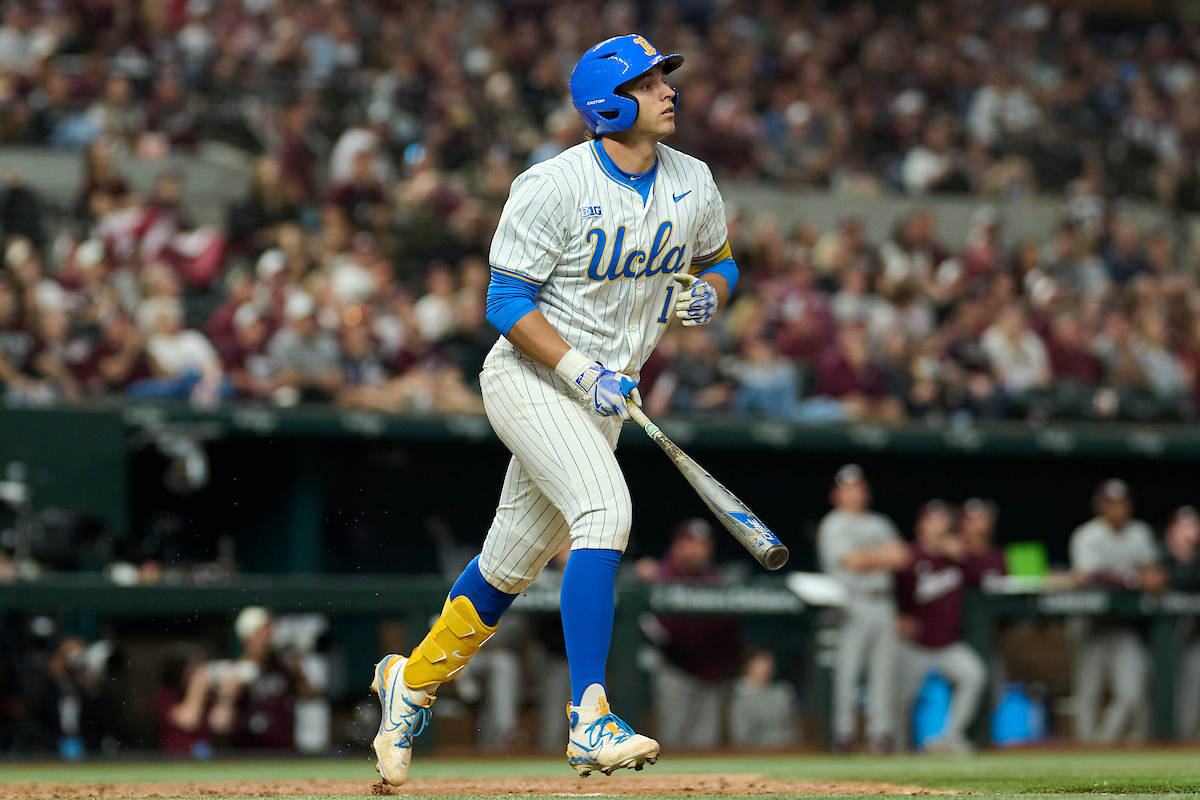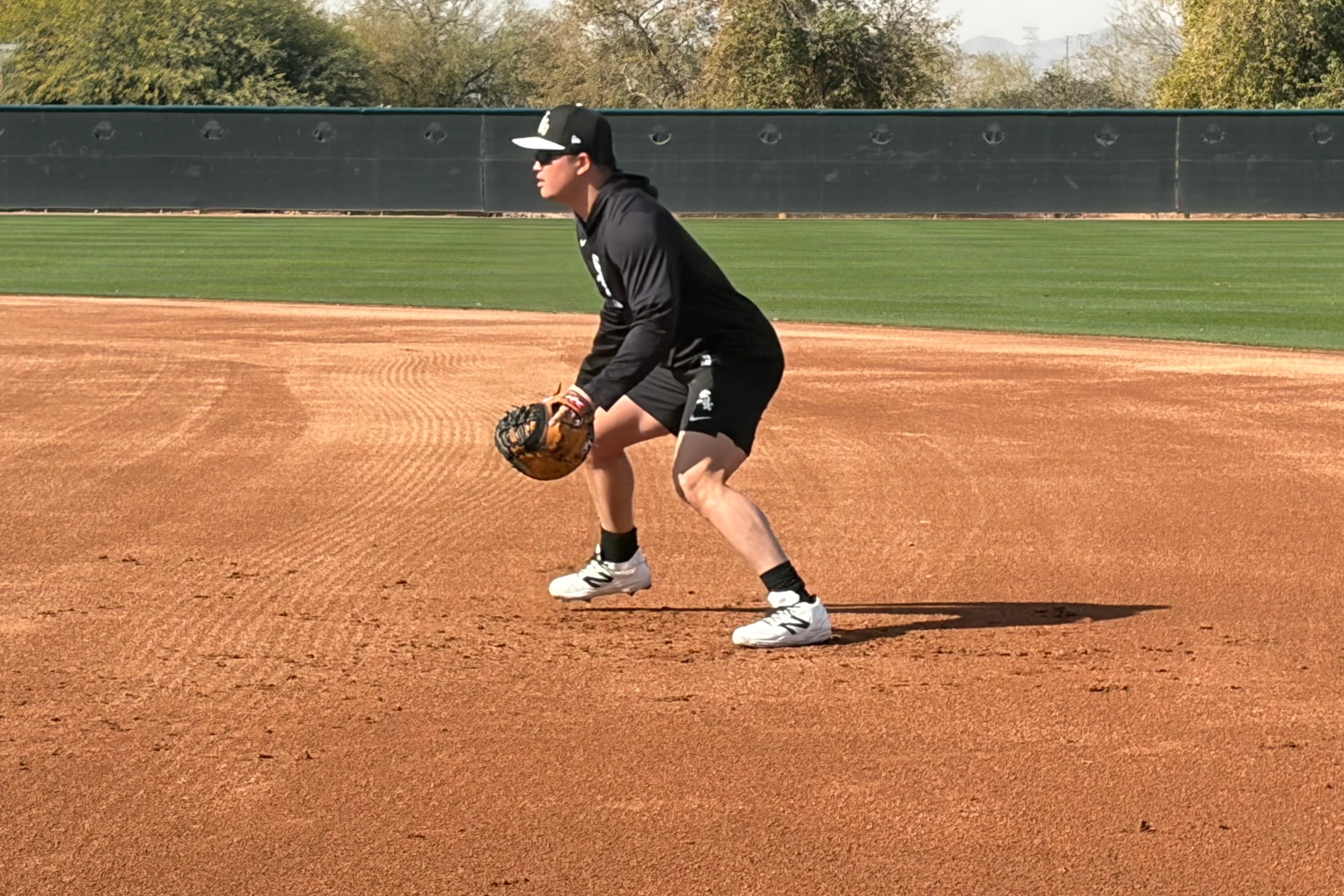I'm done with my move and I have functioning internet, which means I can finally get around to answering the P.O. Sox questions that were intended for today's Sox Machine Podcast. Thank you for your patience.
Lew asks:
How might Andrew Vaughn's readiness be affected by spending his season in Schaumburg rather than in Birmingham or Charlotte?
The unusual talent distribution seemed to benefit the highly talented but underexperienced players. Guys like Andrew Vaughn got reps against pitching that was around in case an outbreak forced them into major-league action, while recent draft picks like Andrew Dalquist and Matthew Thompson got to see what a hitter with some decent weeks in the majors did to their stuff. There was lots of hands-on instruction and concentrated practice for players who didn’t have to balance improving technique with immediate results, and that could be a productive way for certain players to spend a year.
“Seems” and “could” are operative words, because we don’t really know how these players are going to come out on the other side, when they’re back to getting at-bats at an interval determined by game events, against pitchers who are doing more than biding time or working on their weaker offerings.
I’ve been a little surprised by the fast-tracking of Vaughn in offseason plans, although I understand the underlying optimism. It’s strange but entirely welcome to see a White Sox player with a confident understanding of the strike zone and no easily discernable holes in his swing. He puts up a good fight against advanced pitching, but I haven’t seen him drive the ball with regularity in this admittedly small sample. I don’t think it’s unreasonable to expect him to be producing in the majors by the end of 2021, but I think the idea of him as a Plan A is a little soon.
Asinwreck asks:
Our offseason plans have some unsurprising non-tender candidates. Around the league, are there any surprising names you see that might be non-tendered? Anyone the Sox might sign?
One of the benefits of Luis Robert's immediate impact and Adam Engel's long climb to usefulness is that extra defense-first outfielders no longer hold the appeal they used to. In previous years, a market that included Michael A. Taylor and multiple Juniors (Albert Almora, Delino DeShields) might merit consideration on the premise of "at least he can catch the ball." But as long as the White Sox have two guys who can play a strong center field, that profile no longer holds any kind of appeal.
They don't have that kind of depth on the pitching side, so if the White Sox are looking to add multiple starting candidates, I could see them trying to sell a Vince Velazquez, Mike Foltynewicz or Steven Matz on an opportunity to let their talents win a competition before the actual games begin.
Ed asks:
James Fox wrote a great post detailing the Sox bungling of the international market since the Luis Robert signing. You would think after being put in the penalty box for 2 years that the Sox would have planned and been ready to hit the ground running after they were free to spend again. Yet, it seems like a series of missteps and lack of investing in this critical market for players. Do you guys have any insight as to why this is happening or ideas on how they can more effectively utilize the international market?
I wrote about it after the White Sox dealt international money to offload Welington Castillo's buyout, listing the teams usually burst out of the penalty box looking for a breakaway opportunity, but the White Sox instead appeared to have no big plans. There's a reason why Ricky O'Donnell's Bulls podcast is called "Cash Considerations," and it's because Jerry Reinsdorf has a history of prioritizing a marginal amount of money over what he perceives to be marginal opportunities.
The problem is that for the White Sox, whether it's free agency, trades or the international market, they tend to get what they pay for. They've shown no real knack for finding diamonds in the rough. The top international talent is too far away from the majors to guarantee that the White Sox would make good use of $2 million they decline to spend in a given year, but history tells us that they're not going to succeed by spending $2 million less than everybody else, either. Nevertheless, if you told Reinsdorf that you miss 100 percent of the shots you don't take, he'd pull out his phone and pretend to call the Nobel Prize committee, saying he'd found the first math wiz who figured out how to divide by zero.
All hope is not lost -- the White Sox have been tied to compelling Cuban prospects Oscar Luis Colas and Yoelquis Cespedes, and James pointed to 16-year-old Cuban outfielder Mario Luis Pino as well -- but the White Sox would be in better position if their default position was to add to their international pool, rather than treat it as credit card points to redeem for cash back.
orajestad9 asks:
A lot of the free agent options for this offseason are pretty obvious. However, in the offseason plans there are a lot with no trades at all. What do you think the White Sox will do as it relates to trades specifically? Do you think the shortened season and lack of a minor league season decrease the number of trades we will see this offseason? What might be some trade options that Hahn and Co. could look into?
Sometimes offseason plans don't include trades because realistic trades are hard to generate. For those whose hearts said "seven-player trade" but whose brains couldn't make it happen, there seem to be three factors beyond standard risk aversion:
- Faith in the front-line prospects.
- Lack of prospect depth to deal from.
- Teams might not have great data on White Sox prospects.
None of these are unreasonable. You can probably trade one of Michael Kopech, Dane Dunning and Dylan Cease and still maintain necessary pitching depth, but the bulk of the White Sox's redundancies are a year away from making themselves interesting (think Lenyn Sosa) or a year away from maybe making themselves freely available (Gavin Sheets, Yermin Mercedes, Zack Collins, Blake Rutherford). A conservative approach results in deals like Steele Walker for Nomar Mazara, where the result is not worth the effort of drawing up the trade in the first place.
The elements that contributed to the White Sox's quiet trade deadline are still prominent right now, so I'm not expecting the Sox to start shedding prospects or young major leaguers for proven players. There is one element suggesting greater urgency, and that's the firing of Rick Renteria. If the White Sox want to hire a manager they think is better equipped to help them win now, I could see them dealing a promising player who has frustrated them for a guy who better fortifies their 2021 win projections.
And finally, Andrew asks:
If the Sox budget allows them to upgrade only one position, do you think RF or SP gets the priority? Would you rather pick one for a “full” upgrade as opposed to “half-measures” for both?
I think starting pitching would get the priority, if only because a starting pitcher represents more of his unit (one-fifth) than a right fielder with his (one-ninth). If the offense is stout enough, you can put a plus defender out there and bat him eighth or ninth. The White Sox didn’t lose the wild card series because of Adam Engel or Mazara. They lost it because they didn’t have the pitching depth to overcome a stumble by Dallas Keuchel.
I’d rather see them go whole-hog to solve one position, because while Rick Hahn did successfully patch some holes with plus production for once, he had to spend money to do it. Keuchel and Yasmani Grandal looked how they were supposed to look, but the bargain bin (Mazara, Edwin Encarnación, Steve Cishek) had nothing to offer. James McCann aside, the White Sox haven’t proven the ability to spot a bargain, or how to successfully hide the flaws of a player who could be productive under specific circumstances.
Here's where the Renteria dismissal allows us to let our imaginations run a little wilder. We knew that Renteria and Don Cooper didn't care for playing guys out of position or using pitchers in more imaginative ways. A new on-field administration might be one way for the White Sox to make more of minor trades, even if pro scouting is still the bigger factor. The common thread between this and previous answers is the White Sox giving themselves as many ways to succeed as possible, even if none of them feel particularly likely in and of itself.






